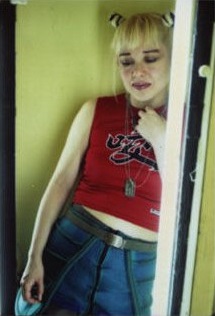
The Beatles, also known as "The White Album", is the ninth studio album by the English rock band the Beatles, released on 22 November 1968. A double album, its plain white sleeve has no graphics or text other than the band's name embossed, which was intended as a direct contrast to the vivid cover artwork of the band's previous LP Sgt. Pepper's Lonely Hearts Club Band. Although no singles were issued from The Beatles in Britain and the United States, the songs "Hey Jude" and "Revolution" originated from the same recording sessions and were issued on a single in August 1968. The album's songs range in style from British blues and ska to pastiches of Chuck Berry and Karlheinz Stockhausen.

John Lennon/Plastic Ono Band is the debut solo album by English musician John Lennon. It was released in 1970, after Lennon had issued three experimental albums with Yoko Ono and Live Peace in Toronto 1969, a live performance in Toronto credited to the Plastic Ono Band. The album was recorded simultaneously with Ono's debut avant-garde solo album, Yoko Ono/Plastic Ono Band, at Ascot Sound Studios and Abbey Road Studios using the same musicians and production team and nearly identical cover artwork.

Sean Taro Ono Lennon is an American musician, songwriter and actor. He is the son of Yoko Ono and John Lennon. Over the course of his career, he has been a member of the bands Cibo Matto, The Ghost of a Saber Tooth Tiger, The Claypool Lennon Delirium and his parents' group The Plastic Ono Band. He has released two solo albums: Into the Sun (1998) and Friendly Fire (2006).
This is the discography of Apple Records, a record label formed by the Beatles in 1968. During its early years, the label enjoyed a fair degree of commercial success, most notably with Mary Hopkin and Badfinger, as well as discovering acts such as James Taylor and Billy Preston who would go on to greater success with other labels. However, by the mid-1970s, Apple had become little more than an outlet for the Beatles' solo recordings. After EMI's contract with the Beatles ended in 1976, the Apple label was finally wound up. The label was reactivated in the 1990s with many of the original Apple albums being reissued on compact disc, and the company now oversees new Beatles releases such as the Anthology and 1 albums as well as the 2009 Beatles remastering programme. In 2010, Apple set about remastering and reissuing its back catalogue for a second time.
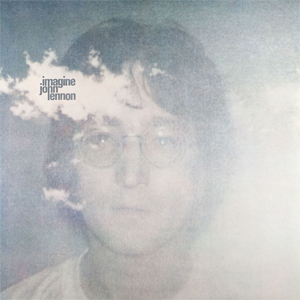
Imagine is the second studio album by John Lennon after his departure from the Beatles. Recorded and released in 1971, the album's musical arrangements are more elaborate compared to the basic, small-group arrangements of his first album, John Lennon/Plastic Ono Band.

Rock 'n' Roll is the sixth studio album by John Lennon. Released in 1975, it is an album of late 1950s and early 1960s songs as covered by Lennon. Recording the album was problematic and spanned an entire year: Phil Spector produced sessions in October 1973 at A&M Studios, and Lennon produced sessions in October 1974 at Record Plant Studios (East). Lennon was being sued by Morris Levy over copyright infringement of one line in his song "Come Together". As part of an agreement, Lennon had to include three Levy-owned songs on Rock 'n' Roll. Spector disappeared with the session recordings and was subsequently involved in a motor accident, leaving the album's tracks unrecoverable until the beginning of the Walls and Bridges sessions. With Walls and Bridges coming out first, featuring one Levy-owned song, Levy sued Lennon expecting to see Lennon's Rock 'n' Roll album.

Double Fantasy is the fifth album by John Lennon and Yoko Ono released in 1980. It is also the seventh and final studio album released by Lennon during his lifetime. The album was initially poorly received. However, following Lennon's murder three weeks after its release, it became a worldwide commercial success and went on to win the 1981 Album of the Year award at the 24th Annual Grammy Awards.
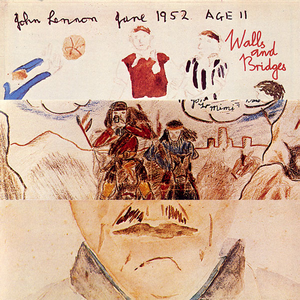
Walls and Bridges is the fifth studio album by English singer-songwriter John Lennon. It was issued by Apple Records on 26 September 1974 in the United States and on 4 October in the United Kingdom. Written, recorded and released during his 18-month separation from Yoko Ono, the album captured Lennon in the midst of his "Lost Weekend". Walls and Bridges was an American Billboard number-one album and featured two hit singles, "Whatever Gets You thru the Night" and "#9 Dream". The first of these was Lennon's first number-one hit in the United States as a solo artist, and his only chart-topping single in either the US or Britain during his lifetime.

Unfinished Music No. 2: Life with the Lions is the second of three experimental albums of avant-garde music released by John Lennon and Yoko Ono, released in May 1969 on Zapple, a sub label of Apple. It was a successor to 1968's highly controversial Unfinished Music No. 1: Two Virgins, and was followed by the Wedding Album. The album peaked in the United States at number 174. The album, whose title is a play on words of the BBC Radio show Life with The Lyons, was recorded at Queen Charlotte's Hospital in London and live at Cambridge University, in November 1968 and March 1969, respectively. The Cambridge performance, to which Ono had been invited and to which she brought Lennon, was Lennon and Ono's second as a couple. A few of the album's tracks were previewed by the public, thanks to Aspen magazine. The album was remastered in 1997.

The John Lennon Collection is a posthumous compilation album of music from John Lennon's solo career.

"I Don't Want to Spoil the Party" is a song by the English rock band the Beatles, written by John Lennon and credited to Lennon–McCartney. It was released on the album Beatles for Sale in the United Kingdom in December 1964. "I Don't Want to Spoil the Party" was also released on the Beatles for Sale EP.

Not Insane or Anything You Want To is the sixth album released by the Firesign Theatre on Columbia Records. It was released in October 1972 and includes some material that was recorded in the studio as well as some material that was recorded before a live audience.

"Imagine" is a song co-written and performed by English musician John Lennon. The best-selling single of his solo career, its lyrics encourage the listener to imagine a world at peace without the barriers of borders or the divisions of religion and nationality and to consider the possibility that the whole of humanity would live unattached to material possessions. Shortly before his death, Lennon said that much of the song's "lyric and content" came from his wife Yoko Ono, and in 2017, she received a co-writing credit.

Come Together: America Salutes The Beatles is a tribute album to The Beatles. Released in 1995 on Liberty Records, the album features covers of various Beatles songs, as performed by country music artists. The album cover features artwork by John Lennon.
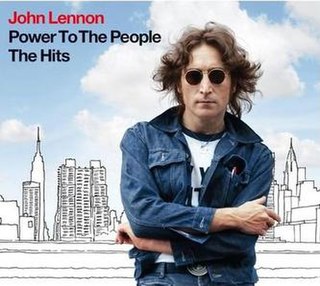
Power to the People: The Hits is a compilation album gathering John Lennon's most popular songs, as part of the "Gimme Some Truth" collection. It is available as a standard 15-track disc and download package, and as an expanded "Experience Edition" with a 15-track DVD.
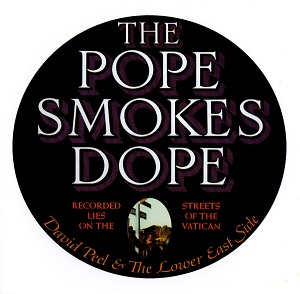
The Pope Smokes Dope is the third album by David Peel and The Lower East Side, released on April 17, 1972 through Apple Records.

